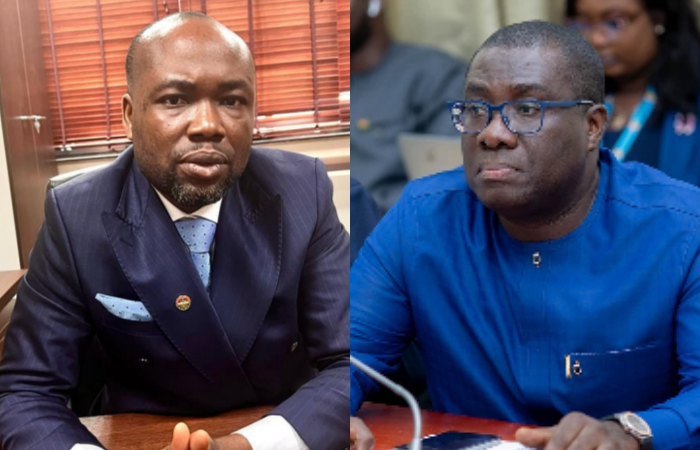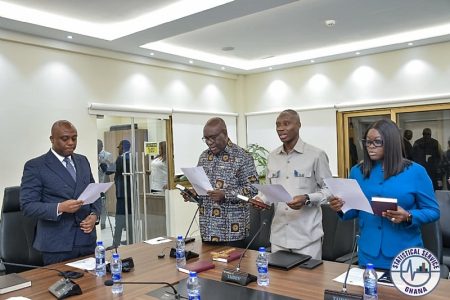The untimely demise of Ernest Yaw Kumi, the Member of Parliament for Akwatia, has cast a long shadow over Ghana’s political landscape, prompting reflections on the debilitating impact of protracted legal battles on political careers. Sammi Awuku, the Akuapem North MP, has offered a poignant tribute to his late colleague, lamenting how relentless court challenges overshadowed and ultimately truncated Kumi’s promising trajectory in parliament. Awuku’s account paints a vivid picture of a young lawmaker burdened by the emotional and psychological strain of constant legal warfare, a situation that tragically prevented him from fully realizing his potential as a public servant.
Kumi’s parliamentary tenure, tragically cut short, was characterized by an unending series of legal disputes that challenged his electoral victory. Awuku’s testimony reveals the profound impact of these legal battles on Kumi’s well-being. He describes a man constantly pulled between the High Court and the Supreme Court, robbed of the peace of mind necessary to effectively serve his constituents. This relentless legal pressure, Awuku emphasizes, prevented Kumi from enjoying the satisfaction of serving his people with a clear conscience and undivided attention. The constant threat of litigation hanging over his head created an environment of stress and uncertainty, ultimately draining his energy and hindering his ability to focus on the needs of his constituency.
The narrative offered by Awuku reveals the human cost of protracted legal battles in the political arena. Kumi’s case serves as a stark reminder of how the relentless pursuit of legal challenges can take a heavy toll on individuals, impacting their mental and emotional health. The constant pressure of defending one’s position in court, coupled with the public scrutiny that accompanies such disputes, can create an environment of immense stress and anxiety. This constant state of tension can lead to exhaustion, disillusionment, and a sense of powerlessness, ultimately hindering the individual’s ability to perform their duties effectively.
Beyond the personal toll on Kumi, the persistent legal challenges also hampered his ability to fulfill his responsibilities to his constituents. Awuku recounts how Kumi’s plans to establish a foundation to support the people of Akwatia were thwarted by the ongoing litigation. This inability to implement his vision for his constituency undoubtedly added to his frustration and sense of unfulfillment. The legal battles, in essence, diverted his time, energy, and resources away from the very people he was elected to serve, creating a tragic irony where the pursuit of legal recourse ultimately undermined the democratic process it was intended to uphold.
Kumi’s passing has left a void in Ghana’s parliament and within the New Patriotic Party (NPP), where he was recognized as a resilient and passionate public servant. His colleagues remember him as someone with immense potential, tragically unrealized due to the unrelenting legal attacks he faced. His case underscores the need for a more balanced approach to electoral disputes, one that respects the integrity of the legal process while also safeguarding the well-being of individuals and ensuring that the pursuit of justice does not come at the expense of effective governance.
In conclusion, the story of Ernest Yaw Kumi serves as a cautionary tale about the potential consequences of unchecked legal challenges in the political sphere. While the pursuit of justice is a cornerstone of any democratic society, it is crucial to ensure that the legal process does not become a weapon used to undermine political opponents or obstruct the effective functioning of government. Kumi’s experience highlights the need for a more nuanced approach to electoral disputes, one that prioritizes fairness and transparency while also recognizing the human cost of protracted legal battles. His legacy should serve as a reminder of the importance of fostering a political environment that allows public servants to focus on their duties and serve their constituents effectively, without the constant threat of legal challenges hanging over their heads.














